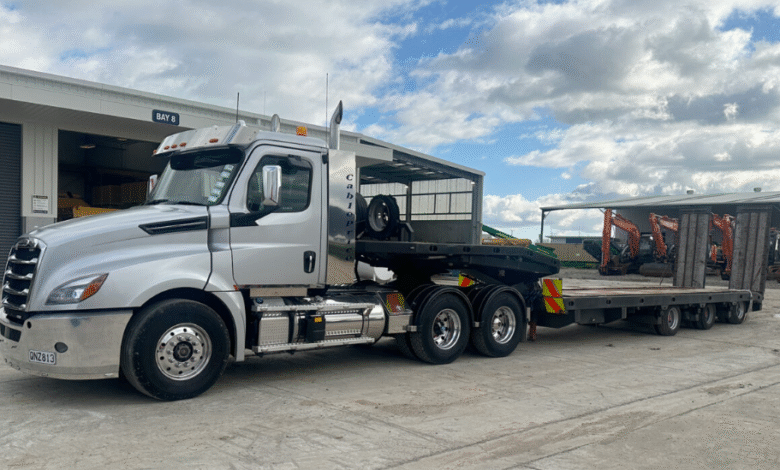How to Choose the Right Trailer for Your Job: A Complete Hire Guide

Whether you’re a tradie, contractor, or a DIY enthusiast, having the right trailer for your job can make transporting materials, equipment or goods much easier and safer. Trailers come in many shapes and sizes, each suited to different types of loads and worksite needs. Hiring a trailer is often more practical than buying, especially for short-term projects or occasional use. But with so many options available, how do you choose the right trailer for your job?
This complete guide will walk you through the key factors to consider when hiring a trailer, helping you select the best option for your specific needs.
Understand Your Load: Size, Weight and Type
Before selecting a trailer, it’s important to know exactly what you need to transport.
- Load type: Are you carrying bulky equipment, loose materials like soil or gravel, or delicate items that need protection?
- Load size: Measure the length, width and height of your cargo to ensure it fits comfortably within the trailer’s dimensions.
- Load weight: Check the total weight, including pallets, packaging and any securing gear. This helps determine the minimum load capacity your trailer must have.
Accurate load details will help you avoid hiring a trailer that is too small or under-rated, which can be unsafe and cause delays.
Different Types of Trailers and Their Uses
Trailers come in a variety of styles, each designed for particular jobs. Here are the most common types you’ll find for hire:
Flatbed Trailers
These are open trailers with a flat deck and no sides or roof. They’re perfect for large, heavy or awkwardly shaped items such as machinery, timber, or steel. Flatbeds offer easy loading and unloading, especially with forklifts or cranes, but require secure strapping to keep loads stable.
Box Trailers
Box trailers are fully enclosed with walls and a roof, providing protection from weather and theft. They’re ideal for transporting tools, furniture or sensitive goods that need to stay dry and secure.
Tipper Trailers
Tipper trailers have a hydraulic bed that tilts to allow quick unloading of loose materials like soil, sand or gravel. These are commonly used in landscaping, construction and waste removal.
Car Trailers
Specifically designed to carry vehicles, car trailers come with ramps and tie-down points to safely load and transport cars, motorbikes or small machinery.
Plant Trailers
Heavy-duty plant trailers are built to carry construction machinery such as excavators, skid steers or generators. They usually have ramps and strong tie-downs for secure transport.
See also: Professional Lighting Installation Services for Homes and Businesses
Match Trailer Capacity with Vehicle Towing Limits
Every trailer has a Gross Vehicle Mass (GVM), the maximum weight it can carry safely, including the trailer itself. When choosing a trailer, your load plus the trailer weight must not exceed the GVM.
You also need to consider the towing capacity of your vehicle. Towing beyond your vehicle’s limits can be dangerous, cause mechanical damage, and is illegal. Check your vehicle’s handbook or consult the hire provider to match your vehicle with an appropriate trailer.
Safety Features to Look For
Safety is paramount when towing, so look for trailers with key safety features:
- Brakes: Electric or mechanical brakes help control the trailer, especially with heavier loads.
- Tie-down points: Secure anchor points or rails keep your load stable and prevent shifting during transit.
- Lighting and reflectors: Proper tail lights, indicators and reflectors ensure visibility to other road users.
- Ramps and gates: Useful for loading heavy equipment or containing loose materials.
- Safety chains and hitch locks: Prevent accidental detachment of the trailer from your vehicle.
Know Your Licence and Towing Requirements
In Australia, towing regulations vary by state and depend on the trailer’s weight and your vehicle type. Your driver’s licence class determines what trailers you’re legally allowed to tow. For heavier or larger trailers, you may need a higher class licence or special endorsements.
If you’re new to towing, it’s a good idea to get some practice or training on safe towing techniques. Many hire centres can offer advice or even demonstrations to help you get started.
Consider Loading and Unloading Practicalities
Think about how you will load and unload your trailer. Will you be doing it manually or with machinery like forklifts?
Flatbed trailers are often easier to load with machinery, while box trailers might require ramps or tailgates. Make sure your chosen trailer fits your loading setup and the space available at pickup and drop-off locations.
Check Hire Terms and Conditions
Before booking your trailer hire, carefully review the terms and conditions:
- How long is the hire period, and are there fees for late returns?
- What deposits or insurance options are required?
- What responsibilities do you have for damage or maintenance during the hire?
- Are there any restrictions on where the trailer can be used?
- What is the procedure for picking up and returning the trailer?
Understanding these details will prevent surprises and ensure a smooth hire experience.
Tips for Safe and Efficient Trailer Use
- Measure your load accurately before hiring to avoid last-minute changes.
- Communicate clearly with the hire provider about your load and towing vehicle.
- Inspect the trailer thoroughly before use, checking tyres, brakes, lights and hitch.
- Load cargo evenly to maintain trailer balance and prevent sway.
- Secure loads properly using tie-down straps and anchor points.
- Drive cautiously: allow for extra stopping distance and take corners slowly.
- Follow all road rules and towing regulations in your area.
Conclusion
Choosing the right trailer for your job involves careful consideration of your load, vehicle capacity, trailer type and safety features. Hiring offers flexibility and access to a range of trailers tailored to various tasks, without the cost of ownership.
By understanding your requirements and working with a trusted hire provider, you can select a trailer that makes your transport tasks easier, safer and more efficient. Whether you’re moving equipment, materials or vehicles, the right trailer is an invaluable asset for any project.




